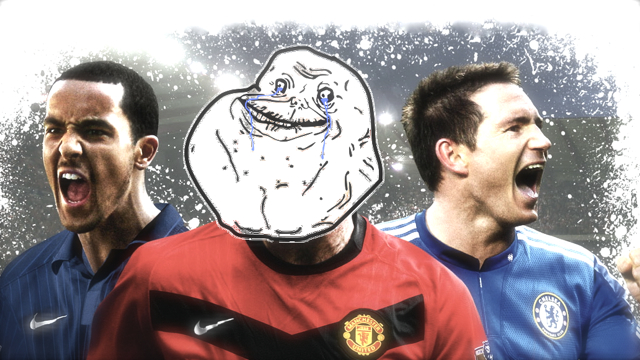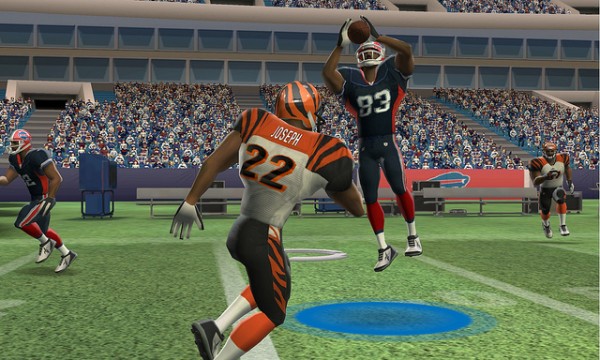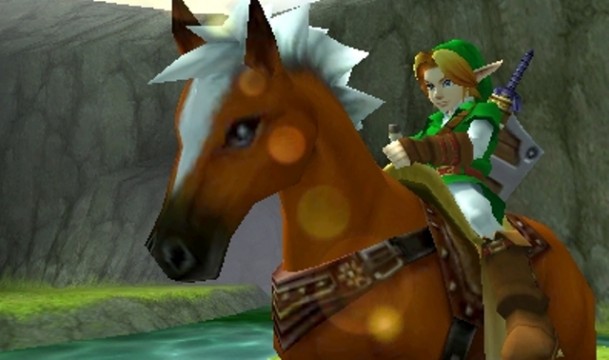 A few weeks ago, EA announced that it would be shutting down the servers for some of its older (and less popular) titles. This is certainly nothing new in the world of online gaming; server maintenance does, after all, cost money, and there is no sense in maintaining one for a game that has long since passed its financial viability. What struck me about this particular announcement, however, was the statement that it makes on the longevity of modern video games.
A few weeks ago, EA announced that it would be shutting down the servers for some of its older (and less popular) titles. This is certainly nothing new in the world of online gaming; server maintenance does, after all, cost money, and there is no sense in maintaining one for a game that has long since passed its financial viability. What struck me about this particular announcement, however, was the statement that it makes on the longevity of modern video games.
Before the advent of online multiplayer, a video game typically survived on the strength of its single-player. There were, of course, multiplayer-centric titles even in the days before wireless play, but by and large the games most fondly remembered (and the ones most frequently included on “best of” lists) have always been solo affairs. Nowadays, it seems every major release is saddled with an online mode in an effort to extend its own lifespan, but the irony of this is they are placing a definitive limit on their playability. Online games, by design, are dependent on other players for much of their fun, so how can they be entertaining if there are no opponents left to face? Can these games possibly weather the test of time if they will be rendered almost unplayable when their servers are inevitably shut down?
It’s an interesting question, to be sure, one that speaks volumes on the current state of the industry (for more reasons than one). A quick glance at the link above will reveal an interrelated problem. You’ll notice a handful of original properties among the games being retired, but the vast majority of the ones listed belong to a yearly sports franchise and have since been supplanted by newer iterations. The decision to shut these servers down will not affect the majority of regular players as their fans have likely already moved on to the newer titles, but is this really an acceptable justification for curtailing the potential legacy of a game? Such trends raise an intriguing question on the value of games. It’s also one that I feel cannot adequately be answered (at least not without the benefit of hindsight) but it’s nonetheless worthwhile to discuss. What makes a game timeless? Is it the innovation it displays on its release, or how fun it continues to be despite its age?

Can you tell which version this screen is from? I certainly can’t.
You can argue that the majority of the games affected by EA’s decision are substandard and were thus destined to be forgotten anyway, but that only half-addresses the issue at hand. Multiplayer games, even very good ones, by their very nature age much more quickly than single-player games, which is especially evident in today’s landscape. You need only to look to first-person shooters for proof of this. Since Halo arrived back in 2001 and helped establish Microsoft as a viable contender in the video game space, the genre has exploded to near ubiquity on consoles. Publishers and developers alike continue to produce shooters in an effort to cash in on its success, and franchises like Call of Duty have since become some of the most lucrative properties in the industry today. However, despite this, the original Halo is a long forgotten footnote in the genre, with support for the console all but neutralised after the success of the Xbox 360.
How does this meteoric rise in first-person shooters affect something like Goldeneye 007? The original, as you well know, is regarded as a classic of the medium, no doubt because of its (at the time) robust and frenetic multiplayer. One would think the game had already proven its timelessness, but when it was remade in the form of Goldeneye 007: Reloaded and released for PlayStation 3 and Xbox 360, it was met with universal indifference. How could this be? Here is a game that had been synonymous with the genre, but its archaic roots (which were especially evident in a market saturated with more contemporary first-person shooters) and lack of features meant it could no longer compete with the shooters of the day. Does this mean that the original Goldeneye has failed to stand the test of time? Is its legacy bound more to the memories it created than the quality of the game itself? There’s no doubt that the original changed the course of the genre and paved the way for a future generation of first-person shooters, but does our contemporary response to a classic in some way deny its success compared to modern advances?

On the other end of the spectrum, Ocarina of Time proves it is still every bit as compelling as the day it was first released.
In light of this, it’s easy to see why single-player games are able to age much more gracefully than multiplayer ones. Even in genres rife with competition, titles rarely cannibalize one another’s sales because of their length. Without a multiplayer mode to vie for their attention, gamers are able to enjoy the full breadth of these whenever they’d like; the self-contained nature of the product creating a sense of timelesness within the playing experience. Much like movies, then, a single-player game’s strength depends upon nothing but itself, even if it is eventually obsoleted by a newer title. That certainly holds true for Ocarina of Time, whose clarity of design shines even more brightly when compared to its longer-winded sequels, Twilight Princess and Skyward Sword.
Which brings us back to the original question: can an online multiplayer game stand the test of time, or is it inherently doomed to be forgotten once its server is shut down? More importantly, is a game’s value born out of nostalgia, or a sense of continued relevance despite its age? I’d certainly love to hear your take on the issue. Feel free to chime in with your own thoughts in the comments section.




 ShareThis
ShareThis







This article was briefly called “Party of One?” and I managed to stumble across the song “Me Party” from the 2011 Muppet movie soundtrack. It’s been on loop for the past two days.
(http://www.youtube.com/watch?v=fJ1hrhJQDC8)
*goes to copy link*
I also forgot to change back the URL slug. Whoops.
*starts singing Me Party* Damn it..
My brothers and I broke out Goldeneye 007 a few years ago at Christmas, and it was by far the most fun I had had in a long time. Having 3 other people in the room just gave it so much more personality, and even though the controls are a bit wooden by today’s standards, that only added to our enjoyment. I think local multiplayer games will always stand up to the test of time better, simply because the ability to play them will never be taken away. Besides, Goldeneye 007 also has a cracking single player mode too, which is more than can be said for most modern FPSs…
I agree with that; I still occasionally have fun with Banjo-Tooie’s multiplayer mode. :)
But yes, like you said, these games also have great solo modes to go along with them. You don’t really see that in modern multiplayer games (especially FPSs), which is why I don’t think they’ll have much of a lasting impact on the industry. It seems too many developers and publishers are content to cash in on trends than explore the boundaries of the medium (which is, incidentally, why I think this “mobile gaming explosion” is another fad, but that’s a story for another day). Not that I can blame them since this is a business, after all, but how many of these titles can you see joining the proverbial video game canon?